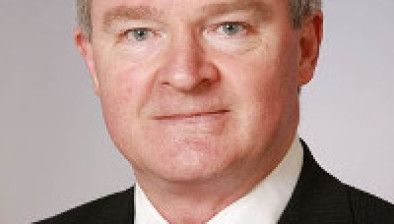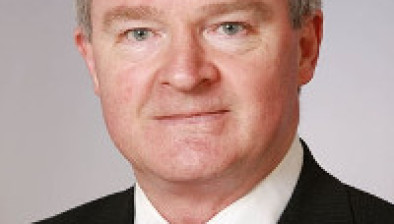NI: Court of Appeal: Brother of murdered boy had legitimate expectation independent report into collusion would be completed
The Chief Constable of the PSNI has lost an appeal against the decision that the brother of a 13-year-old boy who was murdered in 1976 had a legitimate expectation that an overarching investigation into collusion would be carried out by an independent police team.

About this case:
- Judgment:
- Court:Court of Appeal
- Judge:Sir Declan Morgan
Stating that it was the Chief Constable’s task to appoint independent officers, Lord Chief Justice Declan Morgan said any undue delay in such appointments would risk further proceedings.
Background
On 17 March 1976, 13-year-old Patrick Barnard was murdered by a bomb placed outside the Hillcrest Bar in Dungannon.
James Francis McCaughey, Andrew Joseph Small and Joseph Kelly were also killed in the attack.
In December 1980, Garnet James Busby was arrested, and during his interview he admitting to being involved in the Hillcrest bombing and being a member of the UVF. He also admitted to bring involved in the murders of Peter and Jane McKearney in October 1975; the placing of a car bomb outside O’Neill’s bar in Dungannon in August 1973; and the placing of a bomb at Quinn’s public house in Dungannon in November 1973.
In October 1981, Garnet Busby was convicted of 14 offences and sentenced to life imprisonment. In February 1997, he was released on life licence.
In the course of Garnet Busby’s interview, he named three other UVF members as being involved in the Hillcrest bombing. The Court of Appeal said the men were highly likely to have been part of the “Glennane gang”, a group linked to members of the security forces and police personnel, responsible for a significant number of murders and serious terrorist incidents.
Effective investigation
In May 2001, the European Court of Human Rights gave judgment in McKerr v UK and a number of related cases, in which it set out the form of effective official investigation required by Article 2 ECHR. The ECtHR stated that the essential purpose of such an investigation was to secure the effective implementation of the domestic laws which protected the right to life and, in those cases involving State agents or bodies, to ensure their accountability for deaths occurring under their responsibility.
As a consequence, the PSNI Historical Enquiries Team was established in 2005. The function of one HET team was to examine issues of collusion between terrorism and members of the security forces and police officers – for that purpose the HET had established a substantial Analytical Database (HEAD).
The HET produced a Review Summary Report (RSR) for each family that engaged with it, including the families of three of those who were killed in the Hillcrest bombing. The reports indicated that there was no evidence of collusion in the Hillcrest bombing, but that the HET would continue to assess the case as part of investigations into the Glennane gang.
The Pat Finucane Centre (PFC) carried out its own study, and published a report in 2004 which alleged that the Glennane gang were responsible for the deaths of approximately 58 people in the border counties, that the activities of the group were well known to security and intelligence agencies, that there was clear evidence of collusion, and that the true scale of the activities of the Glennane gang was hidden from the public by the deliberate misuse of the justice system.
In 2006, the PFC also arranged for an investigation by the Centre for Civil and Human Rights, Notre Dame Law School, USA.
In 2009, there were a number of meetings between the PFC and the Director of the HET. The HET made a number of representations that the report into the Glenanne gang would be commenced, and in 2011, the HET indicated that the report would be completed by the end of 2011.
In the course of the present proceedings a draft unfinished report entitled “South Border Security Situation Report” was disclosed. The Hillcrest bombing was not included in this as the final RSR for one of the families was still outstanding at the time the draft report was prepared.
The impugned decision
In March 2014, solicitors for Patrick Barnard’s brother, Edward Barnard, wrote to both the Chief Constable of the PSNI and the HET asking for confirmation that the Hillcrest investigation had been linked to all other analysis of the HEAD. Without “any active consideration to the question” of whether a report into the Glenanne gang should be completed, the Chief Constable “concluded that there would be no investigative benefit to be derived from preparing such a report and that such reports were not used in contemporary policing practice in the United Kingdom in the conduct of murder investigations”.
At that time the work of the HET had been suspended, and, in January 2015, was taken over by the Legacy Investigations Branch (LIB) of the PSNI.
Judicial review proceedings
In November 2017, Mr Justice Seamus Treacy said the repeated representations to the families of the Hillcrest victims and to the PFC created a substantive legitimate expectation. He declared that the failure or refusal on the part of the HET to complete and publish an overarching thematic report regarding the linked Glenanne Gang cases was unlawful and in breach of Article 2 ECHR; and made an Order of Mandamus to compel the appellant to expeditiously honour its enforceable public commitment to provide an overarching report into the Glenanne Gang group of cases.
The Chief Constable sought to appeal the decision, raising four main issues:
- Whether Edward Barnard was entitled to rely on ECHR rights introduced into domestic law through the Human Rights Act 1998 in circumstances where Patrick Barnard’s death occurred in 1976;
- Whether there were clear and repeated promises sufficient to ground a substantive legitimate expectation;
- Whether the LIB was sufficiently independent to carry out an investigation into Patrick Barnard’s death;
- Whether it was appropriate to make an Order of Mandamus.
In the Court of Appeal, the Lord Chief Justice, Sir Declan Morgan, upheld the decision that there was a procedural legitimate expectation that an overarching report would be carried out by an independent police team.
However, he said that Article 2 could not be relied upon because of the passage of time. As such, the Court made a declaration that “the impugned decision breached Mr Barnard’s legitimate expectation that independent police officers would analyse the Historical Enquiries Analytical Database to assess whether the analysis pointed to wider collusion between terrorists and the security forces in the Glenanne Series than that identified in the examination of the individual cases”.
Finding that the LIB was not sufficiently independent for the purposes of carrying out the report, and that an Order of Mandamus was not appropriate, the court said the Chief Constable’s task was to appoint independent officers who should then determine how to respond to the procedural legitimate expectation. The court said that if there was undue delay in appointing independent officers, the Chief Constable would be at risk of further proceedings challenging such a failure.
- by Seosamh Gráinséir for Irish Legal News











